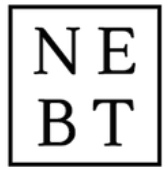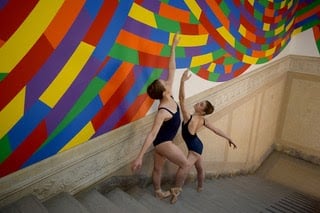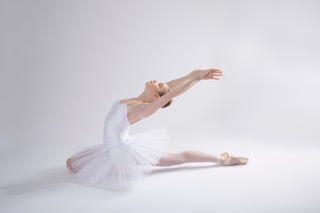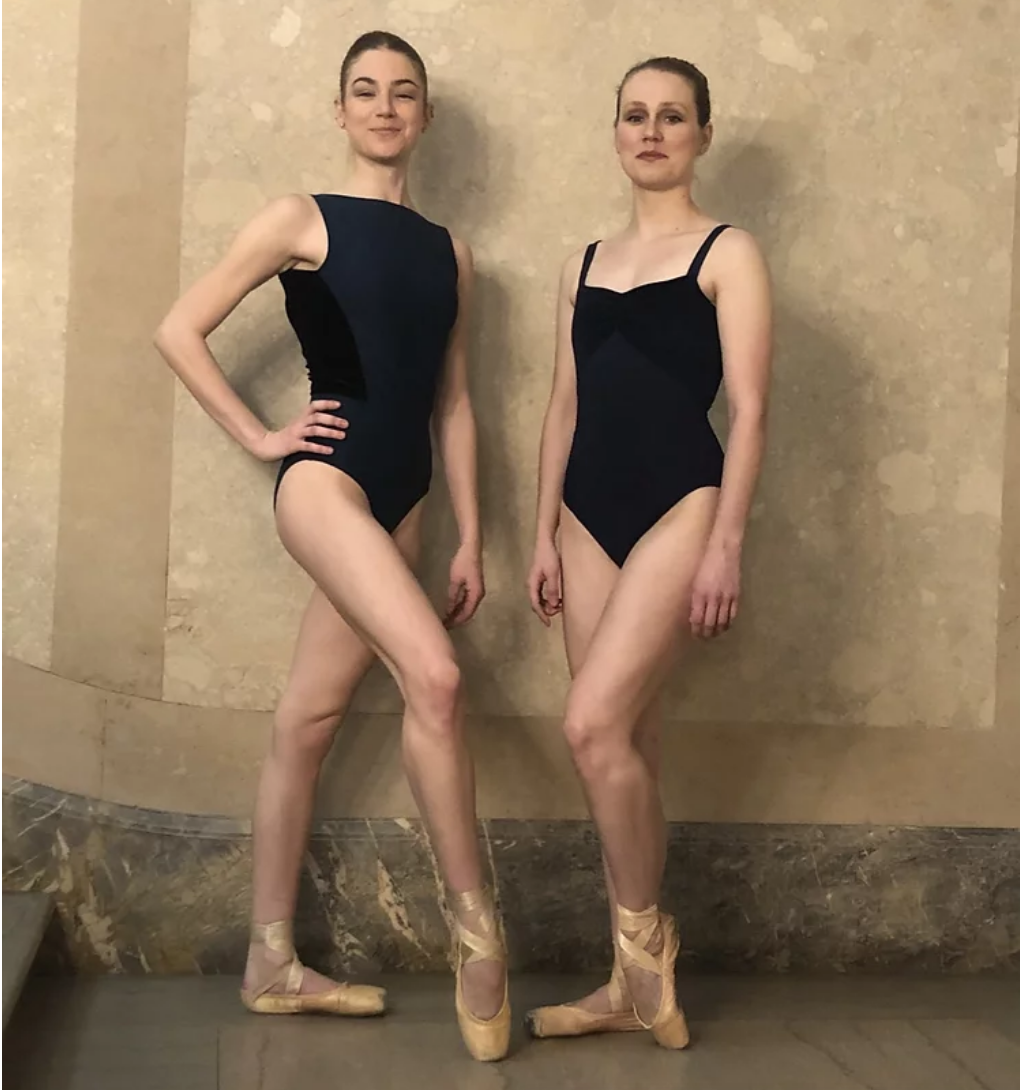Member Spotlight: New England Ballet Theatre
Ballet dancers Rachael Gnatowski and Emily Orzada met while they were both dancing for the Fort Wayne Ballet in 2017. After dancing together for several years at several companies, they decided that by starting their own company, they could seek to remedy some of the issues that they saw in the dance world, while performing top-notch pieces. So, in winter 2020, New England Ballet Theatre was born.
New England Ballet Theatre, based in Hartford, CT, seeks to “provide high-quality performances, to inspire through exceptional educational programs, and to cultivate an appreciation for dance throughout the community.”
With their fledgling ballet company, Gnatowski and Orzada seek to truly prioritize ballet dancers’ mental health, foster new ballets, make ballet more accessible, and increase representation of women in the field.
Here, Rachael Gnatowski shares the origins of New England Ballet and how Fractured Atlas has helped her and her co-founder get to the next level in their work.


Tell us about your work or project. What inspired it and how do you hope it will impact people?
Our story and how we started this ballet company are quite untraditional. We are both ballet dancers in the middle of our dancing careers, so starting a ballet company was not on our radar. We met dancing for the Fort Wayne Ballet in 2017. When it came time to audition for new companies, it was to our excitement that we both got offers from the same new and up-and-coming company in Connecticut.
The first year went really well, and we were so excited to return and continue to grow in the following year. Unfortunately, things fell apart for the company and our contracts were not where they were the year before. About ten dancers ended up not returning, and eight of us came together to dance and curate our own season.
About halfway through the year, our colleagues began talking about moving and transitioning into other fields. Emily and I, however, felt like we were on to something special. There was a need in the community, and there are aspects of the ballet culture that we felt needed to be challenged. That’s when our project was born. We are in the beginning phases, but the outpouring of support from the community and from dancers around the country has been amazing. We are hoping that this new company creates the change we want to see from the ballet world. We want to see more diversity, challenge traditional gender roles, support the creation of new ballets, make dancer’s mental health a priority, and create meaningful outreach and educational programs. Changes I’m not sure the ballet world was ready for, until now. We hope that we inspire other dancers to speak up and take on leadership roles, as well as inspiring members of the community to become more involved in the arts, and to support their local artists.
Describe the process you've taken to bring your project to life. What's been involved?
Ballets Russes is who I draw a lot of inspiration from. From 1909 to 1929, Ballets Russes led the ballet world with their new cutting edge performances, and their fresh experimental approach to the traditionalist art form. They pushed boundaries and even caused a riot with the premiere of the iconic ballet The Rite of Spring. The community of artists they built was truly one-of-a-kind. They collaborated with everyone from Pablo Picasso to Coco Chanel and Igor Stravinsky. That rebellious spirit inspires us to push further, and, through collaboration with other artists, we can create new ballets that challenge the dance world. We currently rent space from a local school and work with them and their students when we have children’s roles in our ballets. We hire outside choreographers and have a couple of costume makers that we work with on new costumes. For our last ballet we were working on, we had a local art student create a digital backdrop for us. We are hoping to start working with local musicians in the future, and further our network of artists we collaborate with.
What have been your biggest challenges with this project or with your work?
Our biggest challenges stem from COVID-19. We haven’t been able to rehearse or dance in the studio since March, and our first large performance has been postponed. It has been challenging us in terms of hiring new dancers and securing our funding. We are in the process of reimagining what our fall will look like, and how we can adapt to performing virtually. Another big challenge we are facing is networking. Neither myself nor Emily are from Connecticut and we are still learning about the area and all that it has to offer. We also had zero prior knowledge when it comes to starting a nonprofit and business. However, we have learned a lot through this process, and continue to expand our knowledge.
Which Fractured Atlas tools and services have you taken advantage of? How have you used them to support your artistic practice?
We just created our first campaign! It’s been very helpful [to direct] people to it for donations. I have also been in contact with [Fractured Atlas] staff members. Anytime that I have questions regarding funding, I have turned to the staff and have received tremendous help, patience, and support. I greatly appreciate all that Fractured Atlas has done to help us get started.

For you, what is the relationship between art and social change? How does your work fit into that relationship?
There’s a famous quote by Nina Simone that really resonates with me. She said, “An artist's duty, as far as I'm concerned, is to reflect the times. I think that is true of painters, sculptors, poets, musicians. As far as I'm concerned, it's their choice, but I choose to reflect the times and situations in which I find myself. That, to me, is my duty.”
I also personally choose to reflect the times, and I believe that art can inspire social change. It is my goal with this company to create a place where the artist's voices are uplifted and supported. We plan on hiring choreographers and dancers that wouldn't normally get the chance to work with ballet companies. Also just by having two young female dancers as directors, we are challenging norms.
70% of programs in the 2018-2019 seasons of the top 50 U.S. ballet companies featured exclusively-male work.
We are working on increasing diversity in all aspects of our company. According to Dance Data Project, a nonprofit advocating for women in dance through data analysis and metrics, 70% of board chairs of the largest U.S. ballet companies are men. While we are still actively building our board, we have named a woman to be our first board president. It is very important to us to take our time and build a board that reflects the community, and even though we are still building our board, I think we are off to a great start. We are also working to increase diversity through the choreographers and dancers we hire, and through the artists we collaborate with. One of the larger productions we are working on for this season (depending on COVID-19) is a mixed rep show in which we will be exclusively hiring female-identifying choreographers. We are planning the performance for March in celebration of Women’s History Month, and it is our hope to make this an annual event.
What has been most useful to you about your Fractured Atlas membership?
Membership has allowed us to focus our attention on our art. It has given me access to professionals in the field who I can turn to for help and guidance. It has given us the ability to accept donations, which is huge! Most importantly it has given us time. Time to figure out our next steps as a company, and how we want to grow.
What was your first big win with Fractured Atlas?
Honestly, that initial email back saying the project had been approved is our first big with Fractured Atlas. I will never forget that feeling, knowing that we had taken our first step towards our dream. It was the first sign of validation and it gave us the confidence boost that we needed.

What advice do you have for other artists or organizations using Fractured Atlas services. How can they get the most out of it?
Best advice I could give would be to ask questions. When in doubt ask questions, and don’t be afraid of contacting Fractured Atlas for help. That’s what they are there for. If you don’t understand how to do something, ask for guidance and remember they want to see you succeed!
How has COVID-19 influenced your plans for 2020 (and beyond)?
COVID-19 has greatly influenced our plans. We were supposed to have our first big performance in May 2020, but it—unfortunately—got postponed. Additionally, the theatre we perform at came back to us and said they will not be reopening for the rest of the year. We have started to discuss how to create work virtually, and are very excited about the possibility of virtual performances. COVID-19 is also forcing us to reprioritize our health. Not only have dancers around the country been unable to rehearse in their studio for months, but it has also taken a toll on dancer's mental health. We want to make sure that when we can rehearse safely, we don’t get injured from trying to take on too much too soon, and that we take care of our mental health.
Our outreach programs have been impacted by COVID-19 the most. We were in the planning stages of creating an after school program, as well as creating a program for a local senior center. Unfortunately, both have since been put on hold until it is safer to resume normal activities per CDC guidelines. In attempts to help uplift the community during this difficult time, NEBT will be hosting virtual programming. At the beginning of the COVID-19 shutdowns, we did a series of free weekly ballet classes through our Instagram account for about ten weeks. We also taught two online classes for the Peabody Institute Library, in Peabody, MA, and filmed one for the Hartford Public Library. Currently, we are developing virtual programs for children to use during the school year that will be free to the public through our social media. Additionally, we are in the process of looking for sponsors to make our now virtual gala more affordable and accessible to the entire community.
Any upcoming events that people should know about? What's next for you that we should be keeping an eye out for?
I cannot give specific details yet, however, I can tell you to keep an eye out for information coming out soon. We are working on creating a virtual gala/launch party, special events for World Ballet Day, and many videos. The best way to stay up to date on performances is to sign up for our newsletter.
You can follow New England Ballet Theatre on their Facebook, Instagram, and YouTube channels.
Support their work on their Fractured Atlas fundraising page!
About Nina Berman
Nina Berman is an arts industry worker and ceramicist based in New York City, currently working as Associate Director, Communications and Content at Fractured Atlas. She holds an MA in English from Loyola University Chicago. At Fractured Atlas, she shares tips and strategies for navigating the art world, interviews artists, and writes about creating a more equitable arts ecosystem. Before joining Fractured Atlas, she covered the book publishing industry for an audience of publishers at NetGalley. When she's not writing, she's making ceramics at Centerpoint Ceramics in Brooklyn.


